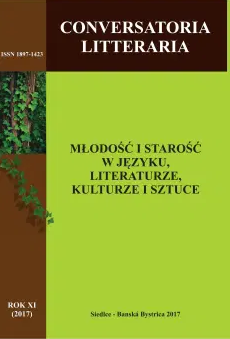KOBIECA STAROŚĆ VERSUS MĘSKA STAROŚĆ NA PODSTAWIE "DICTIONNAIRE COMIQUE, SATYRIQUE, CRITIQUE, BURLESQUE, LIBRE ET PROVERBIAL" PHILIBERTA-JOSEPHA LE ROUX Z 1786
Keywords:
comic dictionary of Le Roux, senility, image of old age women and manAbstract
The Dictionnaire comique, satyrique, critique, burlesque, libre et proverbial by Philibert-Joseph Le Roux, published in 1786, is a dictionary containing fairly extensive lexical material, depicting elderliness in both men and women. This article aims to demonstrate the differences in perception of old age depending on whether it concerns women or men. A visible dichotomy in the manner of speaking about the old age of both genders, as well as their physiology, physical aspects and social role show that old men were treated with a greater tolerance, whereas the female aging process was scorned and ridiculed. An analysis of expressions used to describe old age in both women and men in Le Roux’s dictionary shows that it never constitutes a neutral subject matter, and it is characterised by strong emotional charge, as reflected in expressions referring to this stage of life. On the one hand, its descriptions are vulgar, scornful, and situate old age in contexts where it is ridiculed. On the other hand, however, old age does not condemn people to infirmity: it becomes a time of wisdom and experience. In the linguistic view of the world at the end of the 18th-century in France, the latter, more positive aspect of aging, referred primarily to men.




